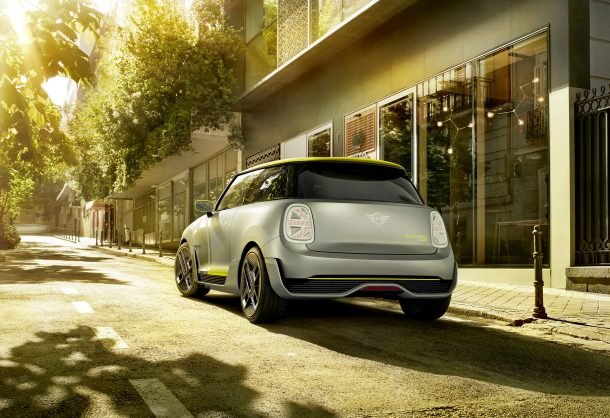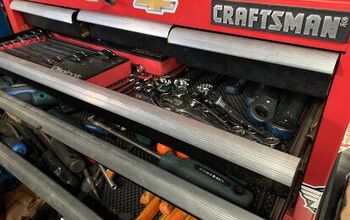Mini Survey Showcases Mixed Opinions on EVs

With governments strongly encouraging the growth of electric vehicles and automakers repositioning various brands to align with that goal, it’s worth a manufacturer’s time to examine the market. Mini, which BMW Group intends to evolve into an EV-focused nameplate, plans to release its first battery powered vehicle in 2020. However, before that occurs, the brand decided to commission Engine International for a little market research.
The firm conducted a general population survey of 1,004 presumably average Americans — all above the age of 18 and split equally by gender. Unfortunately for BMW, the results were less than promising. Most people still don’t seem to have a handle on what EVs offer or how they function. However, that might not necessarily be because they are clueless morons. Apathy undoubtedly plays a role here, especially as EV ownership remains relatively rare.
“It is important for us as a brand to understand how consumers want to use their electric vehicles, and what they know and don’t know about them as we move closer to the launch of the MINI Cooper S E electric vehicle in the U.S.,” said Andrew Cutler, head of Mini’s corporate communications in the U.S. “The more intelligence we gather, the more we can educate consumers about the many benefits of electric mobility and what MINI has to offer in the new MINI Cooper S E electric vehicle coming in early 2020.”
With 74 percent of respondents claiming they had no clue where the nearest EV charging station is located in relation to their home and 66 percent claiming to believe that electric cars were primarily for early adopters, Mini said the survey underscored a need to “raise mainstream awareness around EV technology.”
That’s no doubt true, especially if the brand hopes to thrive after shifting away from internal combustion engines. We’re more inclined to believe that mainstream tastes simply haven’t caught up to electric cars. They’re still relatively novel contraptions associated with a mobility culture that makes some people a little uneasy.
Other less encouraging aspects of the survey included feedback on charging times and what EVs were good for. Most individuals claimed they were primarily for commuting and urban driving. It’s an assumption many automakers are trying to change, but you one could still make a strong case for. While charging stations are cropping up all over North America, the network isn’t quite robust enough to ensure headache-free EV ownership across the board. Relatively wide gaps in some rural areas remain.
When consumers were asked to choose an acceptable amount of time it should take to charge an EV, the most popular answer (at 28 percent) was “I don’t know,” followed by “30 minutes” (at 25 percent). As charging/battery technology continues to advance, times vary wildly between vehicles and stations. At-home charging frequently requires tucking the car in for the night while some newer e-vehicles, utilizing high-capacity stations, can get a majority charge within 30 minutes. However, a complete charge usually takes substantially more time — if you have a smartphone, you’ve seen this phenomenon in action. That last 20 percent always seems to take forever.
There was some good news for Mini within the survey, though. The company said that many who responded to the poll indicated the federal tax credit would not be a significant part of their decision making process if they decided to purchase an electric car — perhaps because they were unaware that it equates to free money from the government. We don’t care what you’re buying — a $7,500 tax credit is absolutely going to influence your decision.
The automaker also claimed that 73 percent of the consumers surveyed said that a battery range of up to 75 miles was sufficient for their daily use. That’s something carmakers can deliver now, suggesting that range anxiety might not be a problem for Mini or BMW Group as the shift toward electrification continues. But we still think a cautious approach is the correct one. Build those EVs and improve the charging network; just don’t presume your customer base is universally ready — even with the proper education from automakers.
[Images: BMW Group]

A staunch consumer advocate tracking industry trends and regulation. Before joining TTAC, Matt spent a decade working for marketing and research firms based in NYC. Clients included several of the world’s largest automakers, global tire brands, and aftermarket part suppliers. Dissatisfied with the corporate world and resentful of having to wear suits everyday, he pivoted to writing about cars. Since then, that man has become an ardent supporter of the right-to-repair movement, been interviewed on the auto industry by national radio broadcasts, driven more rental cars than anyone ever should, participated in amateur rallying events, and received the requisite minimum training as sanctioned by the SCCA. Handy with a wrench, Matt grew up surrounded by Detroit auto workers and managed to get a pizza delivery job before he was legally eligible. He later found himself driving box trucks through Manhattan, guaranteeing future sympathy for actual truckers. He continues to conduct research pertaining to the automotive sector as an independent contractor and has since moved back to his native Michigan, closer to where the cars are born. A contrarian, Matt claims to prefer understeer — stating that front and all-wheel drive vehicles cater best to his driving style.
More by Matt Posky
Latest Car Reviews
Read moreLatest Product Reviews
Read moreRecent Comments
- Redapple2 jeffbut they dont want to ... their pick up is 4th behind ford/ram, Toyota. GM has the Best engineers in the world. More truck profit than the other 3. Silverado + Sierra+ Tahoe + Yukon sales = 2x ford total @ $15,000 profit per. Tons o $ to invest in the BEST truck. No. They make crap. Garbage. Evil gm Vampire
- Rishabh Ive actually seen the one unit you mentioned, driving around in gurugram once. And thats why i got curious to know more about how many they sold. Seems like i saw the only one!
- Amy I owned this exact car from 16 until 19 (1990 to 1993) I miss this car immensely and am on the search to own it again, although it looks like my search may be in vane. It was affectionatly dubbed, " The Dragon Wagon," and hauled many a teenager around the city of Charlotte, NC. For me, it was dependable and trustworthy. I was able to do much of the maintenance myself until I was struck by lightning and a month later the battery exploded. My parents did have the entire electrical system redone and he was back to new. I hope to find one in the near future and make it my every day driver. I'm a dreamer.
- Jeff Overall I prefer the 59 GM cars to the 58s because of less chrome but I have a new appreciation of the 58 Cadillac Eldorados after reading this series. I use to not like the 58 Eldorados but I now don't mind them. Overall I prefer the 55-57s GMs over most of the 58-60s GMs. For the most part I like the 61 GMs. Chryslers I like the 57 and 58s. Fords I liked the 55 thru 57s but the 58s and 59s not as much with the exception of Mercury which I for the most part like all those. As the 60s progressed the tail fins started to go away and the amount of chrome was reduced. More understated.
- Theflyersfan Nissan could have the best auto lineup of any carmaker (they don't), but until they improve one major issue, the best cars out there won't matter. That is the dealership experience. Year after year in multiple customer service surveys from groups like JD Power and CR, Nissan frequency scrapes the bottom. Personally, I really like the never seen new Z, but after having several truly awful Nissan dealer experiences, my shadow will never darken a Nissan showroom. I'm painting with broad strokes here, but maybe it is so ingrained in their culture to try to take advantage of people who might not be savvy enough in the buying experience that they by default treat everyone like idiots and saps. All of this has to be frustrating to Nissan HQ as they are improving their lineup but their dealers drag them down.



































Comments
Join the conversation
People claim to only need 75 miles of range, but people don't buy "need", they buy "want". If we only bought need, virtually no one would be buying SUVs because virtually no one needs to go off road. Virtually no one would be buying an engine or suspension upgrade because the base 2.5 liter 150 hp with skinny all-season radials is more than enough to break every speed law in the USA. Nobody also needs sunroofs, ventilated seats, 900 speaker stereos, or a 21 foot long pickups with 10,000+ lbs of towing capacity, but they buy them because they "want" them. 75 miles would be more than enough for most people's commuter needs, but people "want" to be able to drive across the country at a moments notice, or off-road far away from power outlets, or to get in and out of a car without having to constantly remember to plug-in or unplug the damn battery with some bulky cable.
"Most people still don’t seem to have a handle on what EVs offer or how they function." So? If you need to educate your customers on features/benefits, that's part of the sales process. Maybe the problem is that BMW/MINI relies on its badge and its salescritters don't know how to educate people. Just spitballing the obvious....